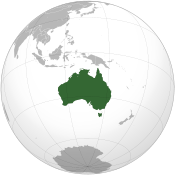Snowy Mountains Hydro could be closed as drought tightens on Australia
Monday, April 23, 2007

Operations at Snowy Mountains Hydro may be suspended in weeks as water supplies fall due to the drought which has affected much of South-Eastern Australia. Water stores as part of the scheme are at their lowest levels since it was opened in 1973.
Mayor of the Snowy Mountains Shire Council, Richard Wallace warned that should water levels in dams continue to fall, many towns in the area may suffer from water shortages. He also warned that the Snowy Mountains Hydro electric scheme could be suspended.
Snowy Hydro Limited, the company which operates the scheme, has predicted that water levels in Lake Jindabyne will fall below the threshold needed to operate power turbines by mid to late May. Lake Eucumbene, the second water source for the scheme will fall below its threshold by late July or early August.
A statement by the company claims that over the last decade, water levels have continued to fall as the drought continues. The drought has lasted longer than the region's previous worst which lasted from 1936 to 1946.
According to the company, water flows are around 30 percent lower than average, with the last eleven months flows being lower than those recorded in 101 years.
It is also feared that low water stores may affect the supply of water for some towns in the region. The Snowy River Alliance, an organisation which promotes the conservation of the Snowy River predicts that water may have to be trucked into towns such as Dalgety in the near future.
Sources
edit- "Water, power for Snowy Mountains towns at risk" — Australian Broadcasting Corporation, April 23, 2007
- Nicolette Burke. "Big dry could force power outage" — news.com.au, April 23, 2007
| This page has been automatically archived by a robot, and is no longer publicly editable.
Got a correction? Add the template {{editprotected}} to the talk page along with your corrections, and it will be brought to the attention of the administrators. Please note that the listed sources may no longer be available online. |

